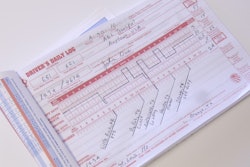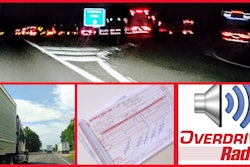Updated September 1, 2021, to reflect a new reporting requirement for any carrier utilizing the emergency exemption to the hours of service.
The Federal Motor Carrier Safety Administration is extending the COVID-19 emergency declaration, which waives Part 395.3 (maximum driving time) of the Federal Motor Carrier Safety Regulations for carriers providing emergency relief related to the pandemic. The declaration, which was set to expire Tuesday, Aug. 31, is now effective through Nov. 30.
The extension comes with a new requirement for carriers using it, however. Carriers will be required to report their use of the exemption within 5 days after the end of each month. The reporting must include the carrier's "reliance on the Declaration," FMCSA said. The move follows the agency's request last month to study the extent of the exemption's use around trucking.
Carriers will be able to report by accessing their portal accounts via Portal.FMCSA.DOT.gov/login. After logging in, carriers will need to access "Emergency Declaration Reporting" under the "Available FMCSA Systems" section of the page.
[Related: FMCSA hoping to study the extent of COVID HOS waiver use]
The agency said it decided to extend the declaration because “the presidentially declared emergency remains in place and because, although the number of COVID-19 cases began to decline in the U.S. following widespread introduction of vaccinations, the delta variant and lagging vaccination rates reversed that downward trajectory and have resulted in a rapid rise in infections and hospitalizations around the country.”

The hours waiver applies to drivers and carriers providing direct assistance, which means transportation and other relief services related to the immediate restoration of essential services (such as medical care) or essential supplies related to COVID-19 during the emergency.
The waiver is limited to transportation of:
- Livestock and livestock feed
- Medical supplies and equipment related to the testing, diagnosis and treatment of COVID-19
- Vaccines, constituent products, and medical supplies and equipment including ancillary supplies/kits for the administration of vaccines, related to the prevention of COVID-19
- Supplies and equipment necessary for community safety, sanitation, and prevention of community transmission of COVID-19 such as masks, gloves, hand sanitizer, soap and disinfectants
- Food, paper products and other groceries for emergency restocking of distribution centers or stores
- Gasoline, diesel, jet fuel, and ethyl alcohol
- Supplies to assist individuals impacted by the consequences of the COVID-19 pandemic (e.g., building materials for individuals displaced or otherwise impacted as a result of the emergency)
[Related: COVID hours exemption not valid 'just because you're hauling food']
Direct assistance does not include non-emergency transportation of qualifying commodities or routine commercial deliveries, including mixed loads with a nominal quantity of qualifying emergency relief added to obtain the benefits of this emergency declaration. To be eligible for the exemption, the transportation must be both of qualifying commodities and related to the immediate restoration of those essential supplies.









